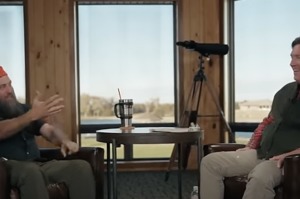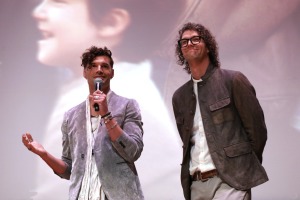Ken Hutcherson: Mentor And Model
On Wednesday, Dr. Ken Hutcherson, founding pastor of Antioch Bible Church in Kirkland, WA, passed through the gates of glory after a more than ten year battle with cancer. What you may not know is that Ken played a major role in the formation of the vision, and ultimately the church that Linda and I planted in 2001: the Mosaic Church of Central Arkansas.
Here's just part of the story, excerpted from my book, Building a Healthy Multi-ethnic Church.
It was the spring of 1993, and I had two options. After ten years of full-time ministry as a youth pastor, two dynamic churches had each invited me to join their staff teams to oversee student ministries.
Antioch Bible Church was a growing and diverse congregation led by former NFL linebacker, Ken Hutcherson. I had heard of Ken's ministry for years and was honored by his enthusiastic invitation. Located in Seattle, Washington, the ministry was just two hours south of my wife, Linda's, hometown of Bellingham, and accepting the job would keep us in the western part of the United States. In addition, I had friends on staff and knew there would be great freedom to design a ministry "as the Spirit leads." Quite simply, there was nothing not to like.
Fellowship Bible Church, on the other hand, was located in Little Rock, Arkansas. Arkansas? I'm not kidding-Linda and I had to get out a map just to find the state! Robert Lewis, the pastor of this "equipping oriented" church, was like Ken, an inspiring leader, and the people we met on our first visit epitomized Southern charm and hospitality. Yet visions of "Hee Haw" (TV show) danced in my head:
"Won't ya' whisper me something sweet, Jimmy Bob?"
"Sho' will, Effie Mae. Nice tooth!"
I pictured the Hatfields and McCoys "feudin' in them th'ar hills" and ticks and chiggers just waiting to embed themselves in my body; I imagined eating grits in the morning and chitlins at the church potluck and cheering for a university whose mascot's a pig. I don't know, man. I'm from Phoenix!
Ironically, my mother, Dorothy, was born and raised in Arkansas but had somehow managed, as I once heard someone say, to "survive and make it out of there." Some fifty years later, was God now leading me back to "her people"?
Now at that time, I was nowhere near where I am today in terms of understanding the biblical mandate for the multi-ethnic church. Indeed, I was largely unaware of Christ's vision for unity and diversity within the local church, unity's intended purpose, the pattern of the New Testament Church, the prescriptions of Paul, or the commitments to oneness that can lead the local church back to a place of prominent influence in the community. The fact is, I had no earthly idea that a diverse church was anything more than flat-out "cool." I only knew that Antioch was integrated and Fellowship was not; somehow, that bothered me.
During the interview process, I asked Robert if he would ever hire an African American to serve alongside him. He told me that he would be open to doing so but not because of the color of the man's skin. Rather, he would hire such a man only if the potential candidate was qualified and if, of course, there was a need. In other words, he would do so only if the applicant was, in fact, "the best man for the job." I remember thinking, "good answer," though honestly, I couldn't say why.
One day, as we neared our decision, Linda was in the next room and I was thinking out loud: "I don't know, Linda. I like the fact that Antioch is a diverse church in a large city out West. I mean, after all, Little Rock is so much smaller than Seattle, and it's in the South-a long way from our families. Think about it! It's a city infamously associated with racism. In 1957, Central High School was forcibly integrated, and the schools are still controlled by the federal courts. Is this really where we want to raise our kids?"
In response, Linda leaned her head around the corner and said, "But who knows, Mark? Maybe God will use you to change things."
"Yeah, right," I flippantly replied. "I'm not even from the South-an outsider-and I'm going to change several hundred years of racial prejudice and segregation?"
Well that was it; we never discussed the issue again. Soon after, though, Linda and I did sense a strange but certain call to Arkansas, and in the summer of 1993, I accepted the job at Fellowship. So we moved our young family to Little Rock, home of the Hogs and to (then) President Bill Clinton -a place of terribly humid summers and an exciting new challenge of turning a youth group into a student ministry. It would be many years, however, before either one of us would begin to realize just how profound Linda's words that day really were.
Eight years later, on May 17, 2001, Linda and I responded in prayer to a very specific call of God on our lives. That day, we committed ourselves and our family to a journey of faith, courage, and sacrifice that would lead to the establishment of a multi-ethnic and economically diverse church in the heart of Central Arkansas-a church founded in response to the prayer of Jesus Christ for unity and patterned after the New Testament church at Antioch (Acts 11:19ff.), as well as after Antioch Bible Church in Kirkland, WA-a church for others, for all people; a church we called Mosaic.
In short, the Mosaic Church of Central Arkansas would not exist today without the influence and impact of Ken Hutcherson in my life. It is fitting then that I was appointed to serve as Mosaic's first lead pastor and elder through the laying on of hands at Antioch Bible Church in the summer of 2001.
__________
A recognized leader in the emerging Multi-ethnic Church Movement, Mark planted the Mosaic Church of Central Arkansas in 2001 where he continues to serve as Directional Leader. In 2004, he co-founded the Mosaix Global Network and will host the 2nd National Multi-ethnic Church Conference, November 5-6, 2013, in Long Beach, CA. Mark has written four books including, "Building a Healthy Multi-ethnic Church" and "Leading a Healthy Multi-ethnic Church." Contact him at [email protected] or via @markdeymaz on Twitter.



























